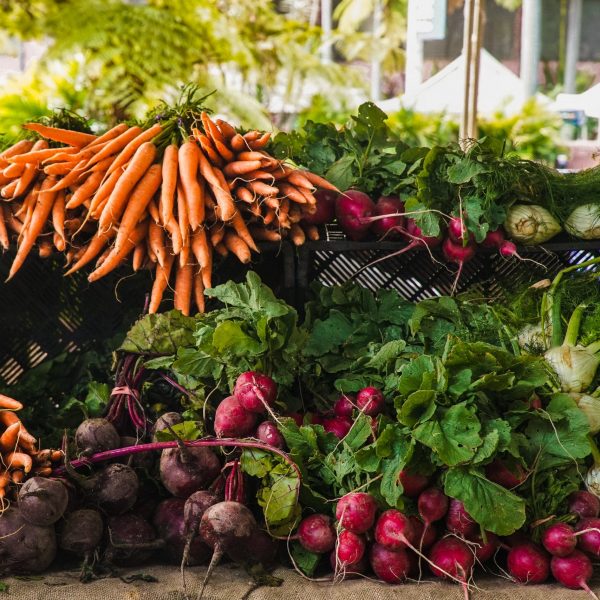Are you wondering how important eating organic foods is for your fertility?
Why is Eating Organic So Important?
What you eat is something that you have complete control over.
Why You Should Eat Organic While Trying to Conceive & Throughout Pregnancy
Note: The following information is compiled from our article 5 Reasons Why Going Organic is Good for Your Fertility by Dalene Barton-Schuster, CH.
1. Organic Foods Found to Have More Antioxidant Activity
This is great news because antioxidants have been shown to protect egg and sperm health.
“A recent study, published October, 2015 in the British Journal of Nutrition showed that organic foods have higher antioxidant levels and lower heavy metal concentrations. Researchers analyzed 343 studies of the compositional differences between organic and conventional crops and found that just by choosing to eat organic vegetables, grains and fruits, and the foods made from them, you would be getting more antioxidants daily, equivalent to eating 1-2 extra portions of fruit and veggies a day.”
2. You Will Be Helping to Protect Your Baby’s Brain and Nervous System Development
“A powerful chemical in pesticides, called organophosphorus (OP) has been found in the human body and it is thought that 80% of that organophosphorus comes from pesticide coated foods. It is a well-known fact that OP is a neurotoxin and people exposed to high levels of OP may experience grave health problems and even death.
A 2011 report showed a correlation between pregnant agriculture workers exposed to OP and the cognitive and behavioral development of their young children. The children of women with higher concentrations of OPs in pregnancy [as measured by dialkyl phosphate (DAP) metabolites in urine] were shown to have poorer intellectual development and a greater incidence of behavioral issues such as ADHD, as they grew up.
Developing babies and young children’s bodies are not yet mature enough to filter out and handle toxin exposure. They are highly sensitive to neurotoxins.”
3. Organic Foods Are Non-GMO
Genetically modified (GM) foods are commonly known as GMOs (genetically modified organisms). GM foods are widely prevalent, accounting for our most consumed food crops such as corn, soy, canola, sugar beets and many others. These GMOs are genetically altered to be resistant to pesticides. GMOs have been linked to a variety of health conditions, including infertility. Not only is the genetic makeup of the plants modified to withstand herbicides and pesticides, they are heavily sprayed with both, giving the human body a double whammy of toxin exposure.
4. Avoiding Non-Organic Foods Helps to Promote Hormonal Balance
“Pesticide and GMO laden crops are used to feed conventionally raised meat and dairy. Many chemicals in pesticides are known xenohormones, which mimic and exert a strong hormone-like effect on the body. Xenohormones are known endocrine system disruptors; the endocrine system controls and manufactures hormones. Altering this system in any way can lead to hormonal imbalance.”
Men who consume pesticides in their foods are 10 times more likely to have low sperm count! There are several common pesticides now undergoing closer scrutiny for the role they play in fertility problems plaguing the U.S. and Europe.
Where to Start Eating Organic
Cook Your Own Foods & Purchase Whole Foods
These are in order of importance:
1. Dairy and meat products – pesticides, GMOs and hormones are most concentrated in these products. Focus on 100% grass-fed dairy and meat products. Wild game is another option for meat.
2. Fresh fruits and vegetables
| The Dirty Dozen: Peaches Apples Celery Sweet bell peppers Cherries Imported grapes Nectarines Pears Potatoes Raspberries Strawberries Spinach Corn Soy |
High Risk GMO Foods: Corn Soy Sugar beets Canola Cottonseed Alfalfa Potato Radicchio Papaya Squash Farm raised salmon |
3. Eggs – pastured eggs
Resources talked about in this video:
5 Reasons Why Going Organic is Good for Your Fertility
Fertility Diet Tip – How Eating Healthy Can Be Affordable
GMO Corn & Roundup Shown to Cause Hormonal Imbalanc





